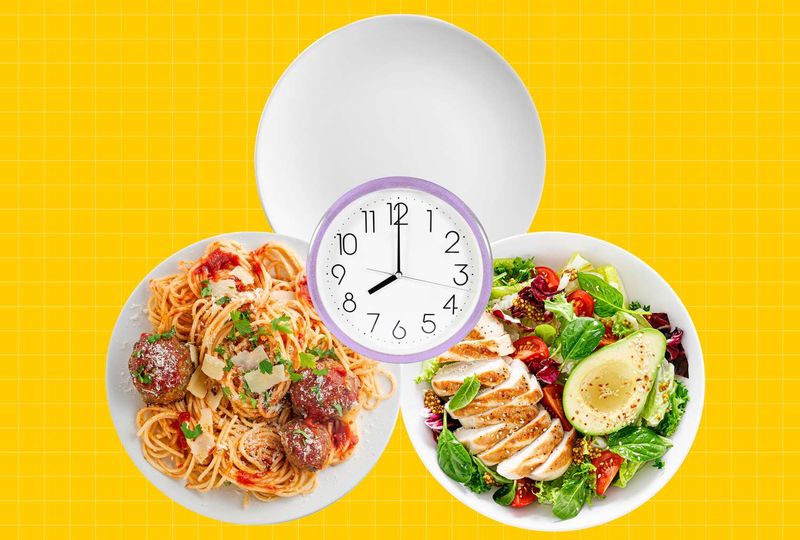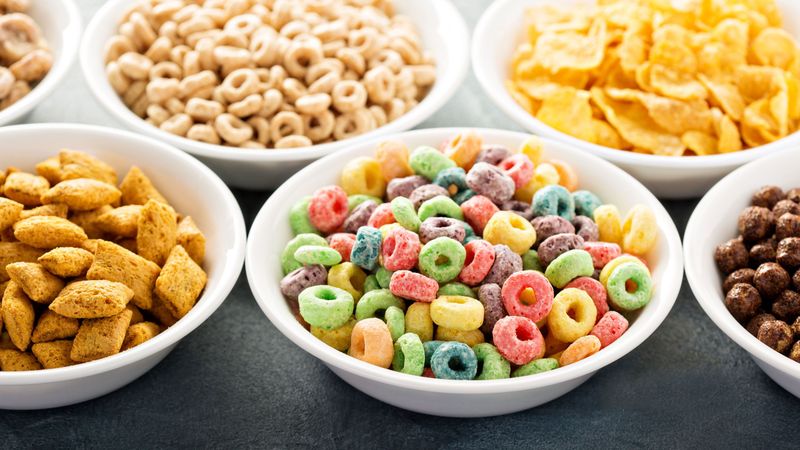7 Breakfast Habits That Don’t Help and 5 Genius Hacks to Upgrade It All

This blog post explores common breakfast habits that may not be serving your health and energy needs, and offers clever hacks to transform your morning routine. From skipping breakfast to multitasking during meals, these habits can lead to energy crashes and increased hunger throughout the day. However, with simple adjustments like adding protein, preparing meals in advance, and incorporating healthy fats, you can elevate your breakfast experience and start your day on the right foot. Discover how mindful eating and balanced nutrition can transform your mornings for the better.
1. Skipping Breakfast Altogether

Many believe that skipping breakfast saves time or cuts calories, but it can leave you feeling drained by mid-morning. Hunger pangs hit hard, and you might find yourself reaching for unhealthy snacks. Eating nothing can confuse your metabolism, slowing it down and making it less efficient.
In addition, skipping breakfast could affect your mood and concentration, leaving you less productive and more irritable. The body requires fuel after a night of fasting, and without it, you may struggle to perform at your best.
A balanced breakfast can set a positive tone for the rest of the day.
2. Grabbing Only Coffee

For many, a morning doesn’t start until they’ve had their coffee, but relying solely on caffeine can backfire. Drinking coffee on an empty stomach may lead to jitters, irritability, and an energy crash long before lunchtime.
While coffee can stimulate alertness, it lacks the nutrients needed to fuel your body. You might feel sharp initially, but without a balanced meal, this energy boost is short-lived.
It’s crucial to pair coffee with something substantial, like a protein-rich breakfast, to maintain energy levels and support overall health.
3. Eating Just a Piece of Fruit

While grabbing a piece of fruit for breakfast might seem like a healthy choice, it’s not enough to sustain you throughout the morning. Fruit is rich in natural sugars, providing a quick energy boost, but without protein or fat, you’ll quickly feel hungry again.
The lack of balance can lead to a mid-morning slump, making it harder to focus on tasks at hand. Adding a handful of nuts or a slice of whole-grain toast can help stabilize your energy.
Combining fruit with other nutritious options ensures you get a well-rounded start to your day.
4. Loading Up on Sugary Cereal

Sugary cereals might remind you of childhood, but they can wreak havoc on your energy levels. These cereals often cause a rapid spike in blood sugar, followed by a crash that leaves you feeling hungrier than before.
Sugary options lack the fiber and protein needed to keep you satisfied, meaning you might find yourself reaching for snacks well before lunch. It’s a cycle that can lead to overeating and weight gain.
Opting for whole-grain cereals with natural sweeteners and added fruits can make a world of difference in maintaining steady energy.
5. Overdoing the Carbs (and Skipping Protein)

Carbohydrates are a popular morning choice, but without protein, they may leave you feeling sluggish and snacky. Consuming primarily carbs can lead to quick energy depletion and a yearning for more food.
Protein, on the other hand, helps sustain energy and keeps you satisfied longer. This means you’re less likely to experience those mid-morning cravings.
Incorporating eggs, Greek yogurt, or even a protein shake alongside your carbs can create a more balanced and fulfilling breakfast, setting you up for a productive day.
6. Chugging Juice Like It’s Health Food

Juice may seem like a healthy choice, but it often contains as much sugar as soda, without the fiber. This can lead to rapid spikes in blood sugar, followed by a crash that saps your energy.
Drinking juice without fiber means missing out on the benefits of whole fruits, such as improved digestion and prolonged fullness. Instead of juice, consider blending whole fruits into a smoothie, preserving the fiber and adding nutrients.
Opting for whole food alternatives ensures you stay satisfied and energized throughout the morning.
7. Multitasking While Eating

Eating breakfast while multitasking might seem efficient, but it diminishes the eating experience and leaves you unsatisfied. When distracted, you may not recognize fullness cues, leading to overeating later.
Mindful eating allows you to savor flavors and textures, enhancing satisfaction and digestion. Taking a moment to focus only on your meal can improve your relationship with food.
Setting aside even a few undistracted moments in the morning can transform how you approach meals, making each bite more nourishing and enjoyable.
8. Add Protein—Every Time

Incorporating protein into every breakfast is a game-changer. Whether it’s eggs, Greek yogurt, or nut butter, protein helps keep hunger at bay and energy levels stable.
Protein-rich foods provide essential amino acids that are vital for muscle repair and growth. They also aid in maintaining a feeling of fullness, reducing the temptation to snack.
Making protein a priority in your morning meal can enhance both your physical energy and mental focus, ensuring a more productive day ahead.
9. Prep the Night Before

Preparing breakfast the night before can relieve morning stress. With dishes like overnight oats or breakfast burritos, you can enjoy a nutritious meal without the morning rush.
This approach encourages healthy eating habits by providing convenience and reducing the temptation to skip or opt for less healthy options. Having a ready meal also allows for more mindful eating.
Investing a little time in evening prep leads to a smoother start to your day, allowing you to focus on other priorities.
10. Use Healthy Fats to Stay Satisfied

Healthy fats, like those found in avocados or nuts, add flavor and satisfaction to breakfast. They help slow digestion and keep you feeling full longer, which can prevent overeating.
Incorporating fats into your morning meal supports brain health and improves absorption of fat-soluble vitamins. Combining fats with protein and fiber creates a balanced breakfast.
Exploring different sources of healthy fats can not only diversify your diet but also stabilize energy levels throughout the morning.
11. Build a Balanced Plate

Creating a balanced breakfast plate involves combining protein, fiber, fat, and carbs. This approach ensures a steady release of energy and keeps hunger at bay.
An example might be an omelet with vegetables and a side of whole-grain toast, finishing with a handful of berries. This blend of nutrients supports metabolic health and sustains energy.
Building a balanced plate can be a creative endeavor, helping you find new and enjoyable foods that fit into a healthy lifestyle.
12. Slow Down and Actually Eat

Taking time to enjoy your breakfast can significantly improve your day. Even a brief pause allows for better digestion and increased awareness of hunger cues.
Eating slowly helps in appreciating the taste and texture of food, enhancing satisfaction and preventing overeating. It also sets a relaxed tone for the day.
Mindful eating in the morning can transform your relationship with food, making meals more enjoyable and promoting well-being.
